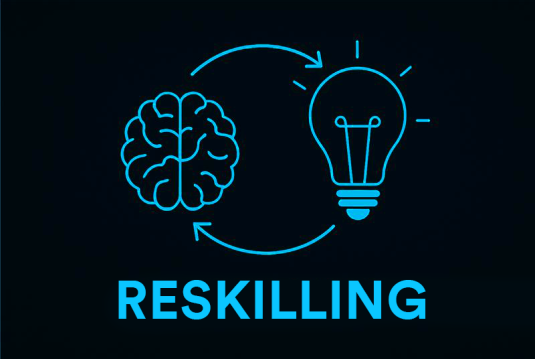Using the Right Body Language at a Job Interview
Body language plays a key role when people communicate with each other. The words we speak account for 19% of our communication, the voice accounts for 26% and our body language accounts for 55%. This is what research by the German opinion research centre Allensbach-Institut showed.
In a job interview for example it doesn't matter what we say, it is more important how we say it and what signals we are sending our interview partner. We are often not aware of the body language we are using, particularly in job interview situations when we are nervous.
Insecure?
Different kinds of body language signal insecurity. For example, if someone taps his fingers on the table he could come across as being insecure. Or if someone puts the tips of his fingers together and points to his interviewee, this is a sign of insecurity too. A further sign is folding your arms in front of your chest.
Confident?
Someone who is confident moves his arms above the waist or folds his hands across his waist.
Sceptical?
Resting your chin on your hand is a sign that you are sceptical. Another sign is stroking your index finger across your upper lip.
Arrogant?
Nobody wants to come across as arrogant in a job interview, right? Then it is best not to point your index finger in the air or fold your hands with your finger tabs touching.
Now you have received a lot of information about what not to do with your hands, but where should you best place your hands during a job interview? Take a pen in your hand and take some notes on a piece of paper, that will make you feel more confident.
In our Coopers Interview Preparation Kit we have lots of information on how to best prepare for a job interview. And of course, once you are well-prepared all you need is the ideal job, so you can make use of your newly acquired knowledge. We have lots of open positions in the IT and Engineering field, maybe you will find a job that is suitable for you?
Content Source: Giselle Chaumien-Wetterauer
Career

Mindset matters: Why Your Way of Thinking Determines Success
Find out here why the growth mindset is the key to long-term success.

Reskilling
New roles are emerging. Reskilling is the key to preparing people and companies for the future. Why now is the time to rethink and how Coopers recognizes potential before it is visible on CVs.

Upskilling as Career Booster
Upskilling: How to develop your skills and career strategically, without switching jobs.

AI in the Workplace
Survival of the Fittest in today’s job market: Those who adapt benefit the most from AI.


_1.svg)